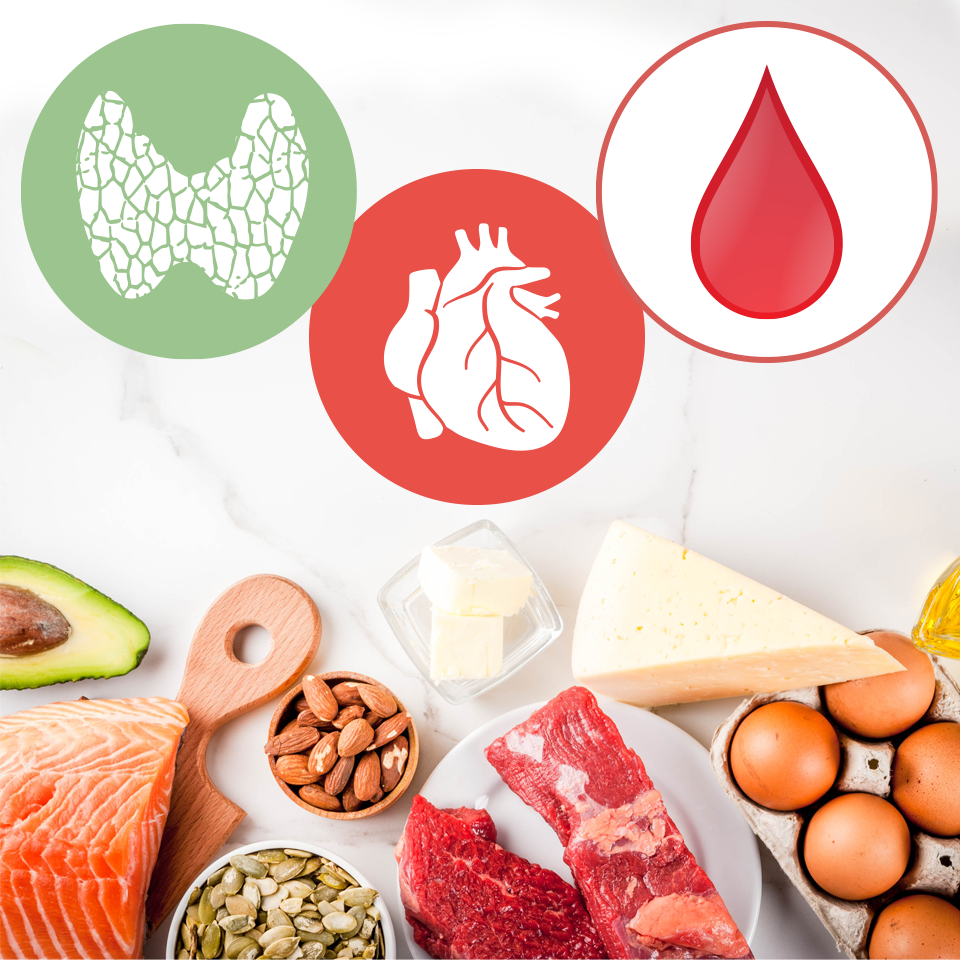Description
Blood tests can help make sure your ‘healthy’ diet isn’t doing your body damage.
If you want to lose weight quickly, you’ve probably heard about – or may already be following – the ketogenic (‘keto’) diet.
As well as being an effective way to lose weight, studies have shown this high-fat, low-carb diet may deliver other health benefits, including reducing seizures in children with epilepsy and protecting brain function.
But while the diet certainly has its merits, it’s easy to do keto wrong.
And if you’ve been following the keto diet for a long time, you could be at greater risk of developing certain health problems, especially if you’ve got an underlying issue that needs to be addressed.
That’s why it’s important to regularly monitor what’s going on inside your body, to make sure your ‘healthy’ diet isn’t having the opposite effect.
Here are three important things to check when following the keto diet to safeguard your health now and in the future.
>>1. Monitor your blood sugar levels
There’s evidence to suggest that the keto diet may affect the body’s ability to respond to insulin – a condition known as insulin resistance.
When this happens, the body becomes less efficient at removing sugar from the bloodstream, increasing the risk of developing conditions like type 2 diabetes and cardiovascular disease.
>>>2. Check your cholesterol levels
While a standard cholesterol panel will tell you your good cholesterol/bad cholesterol ratio, advanced lipid tests like those in our Keto Lab Panel take this a step further and actually measure the quality of your LDL particles, so you know how damaging (or not) they are to your blood vessels.
If you’re planning on starting or are already following a low-carb, high-fat diet, it’s also a good idea to get your lipoprotein(a) levels tested.
This type of LDL is mostly determined by your genes, and some studies suggest elevated levels can triple your risk of heart attack or stroke.
While eating a high-fat diet (or not) won’t usually affect your Lp(a) levels, experts believe high Lp(a) levels are most damaging when your LDL levels are also high, so it’s important to know if you have any underlying cholesterol problems so you can reduce your risk factors as much as possible.
>>>3. Monitor your thyroid hormones
T4 (thyroxine) and T3 (triiodothyronine) are the main hormones produced by the thyroid gland. They play an essential role in many vital body functions, including your heart rate, metabolism and fertility.
Thyroid Stimulating Hormone (TSH), which comes from your pituitary, is also crucial to how well your body functions, as it affects the amount of T4 and T3 your thyroid produces.
The keto diet doesn’t usually cause any problems if your thyroid is functioning normally.
But eating too few carbs can lower your thyroid hormone levels, which may cause issues if your baseline levels are already low.
For example, if your T3 and T4 levels are low, you may experience problems like fatigue, constipation and weight gain.
And if you think this doesn’t apply to you, consider this: the American Thyroid Associationestimates that nearly 20 million Americans have some sort of thyroid disease, and as many as 60 per cent of those don’t know they have the condition.
That’s why it’s a good idea to check your T3, T4 and TSH levels if you’re thinking of (or already) following the keto diet, so you can make sure your diet isn’t exacerbating any underlying issues.

